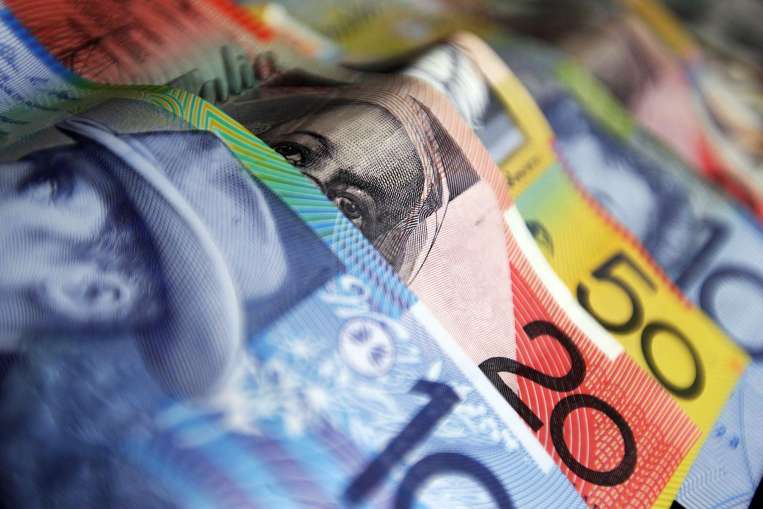- RBA keeps Interest Rates Unchanged as Strong Housing Market Outweighs CPI
Reserve Bank of Australia Governor Philip Lowe kept interest rates unchanged, signaling he’s prepared to tolerate weak inflation to avoid further stoking “briskly” rising property prices and household debt.
Lowe opted not to react to soft consumer prices growth last quarter and held the cash rate at a record-low 1.5 percent, as predicted by 22 of 28 economists surveyed and in line with money market bets. The new governor’s well-flagged concerns about easy money’s risks to financial stability and asset bubbles has led traders to scale back bets on a reduction next year as well.
“The economy is growing at a moderate rate,” Lowe said in his statement. “The large decline in mining investment is being offset by growth in other areas, including residential construction, public demand and exports.”
The governor’s confidence in letting inflation languish well below target stems from stronger economic growth and lower unemployment, as well as a rebound in commodities and an improved outlook in key trading partner China; Lowe has already said he and his colleagues aren’t “inflation nutters.” The decision also fits into a growing global consensus among central bankers that monetary policy is approaching the limits of its effectiveness.
The Australian dollar rose, buying 76.57 U.S. cents at 3:29 p.m. in Sydney compared with 76.19 cents before the decision. Money-market bets for a 2017 rate cut were pared back to a maximum one-in-three chance, from about 42 percent prior to the decision.
“The bank’s forecasts for output growth and inflation are little changed from those of three months ago,” said Lowe. “Over the next year, the economy is forecast to grow at close to its potential rate, before gradually strengthening. Inflation is expected to pick up gradually over the next two years.” The RBA will release its updated growth and inflation forecasts Friday.
Lowe said economic conditions in China “have steadied recently,” supported by an expansion in infrastructure and property construction, while noting “medium-term risks to growth remain.” He reiterated that higher commodity prices have supported a lift in Australia’s terms of trade, referring to export prices relative to import prices. The governor injected a slightly gloomier tone on household consumption, saying it appeared to have slowed “a little.”
Aussie Relief
Lowe reiterated the RBA’s now standard line that an appreciating currency could complicate the economy’s adjustment from resource investment.
The central bank may get some relief from the local dollar, the best performing Group of 10 currency since June 30, if its U.S. counterpart raises rates in December. A lower Aussie would provide a tailwind to services exports like tourism and education that are highly sensitive to the currency and key growth drivers for the post-mining boom economy.
Given his signals on financial stability, Lowe would be loathe to further inflate Sydney house prices — already up more than 50 percent in the past four years — or increase household debt that’s soared to a record 158 percent.
That’s particularly so when the economy expanded an annual 3.3 percent in the second quarter, even though much of that came from labor-light resource exports. The jobless rate has fallen to 5.6 percent, though that level is also flattered by a falling participation rate and high part-time employment.
Coal Comeback
Then there’s commodities: the terms of trade are rising for the first time in more than two years. Coking coal has surged more than 200 percent this year as output from China, the world’s biggest miner, tumbles under government pressure to cut overcapacity. Iron ore, Australia’s biggest export, has rebounded almost 50 percent.
Australia’s core annual inflation averaged 1.5 percent in the third quarter, well below the central bank’s 2 percent to 3 percent target range. Record-low wage growth, imported disinflation, fierce local retail competition and spare capacity in the economy all suggest consumer prices are unlikely to rebound soon; as a result, many economists view the RBA as retaining an easing bias.
“The Reserve Bank says inflation has bottomed and that the economy is set to grow at a faster-than-normal pace,” said Craig James, a senior economist at the securities unit of Commonwealth Bank of Australia. “Rate cuts are off the agenda for now.”

 Billionaire Watch3 weeks ago
Billionaire Watch3 weeks ago
 Startups4 weeks ago
Startups4 weeks ago
 News4 weeks ago
News4 weeks ago
 News4 weeks ago
News4 weeks ago
 Bitcoin4 weeks ago
Bitcoin4 weeks ago
 Naira4 weeks ago
Naira4 weeks ago
 Forex3 weeks ago
Forex3 weeks ago
 Treasury Bills4 weeks ago
Treasury Bills4 weeks ago
























